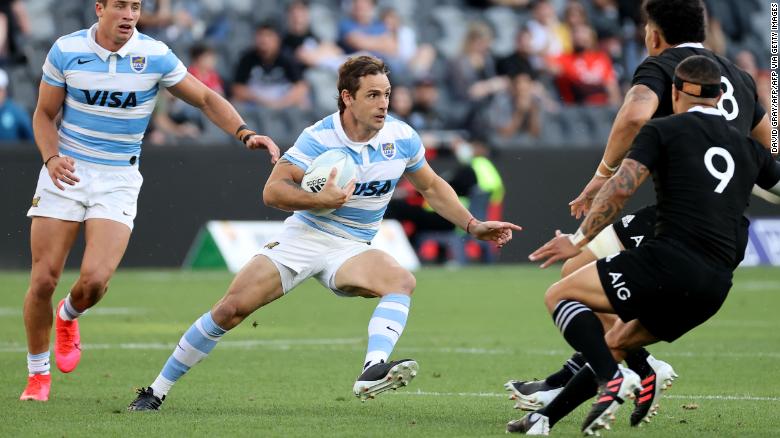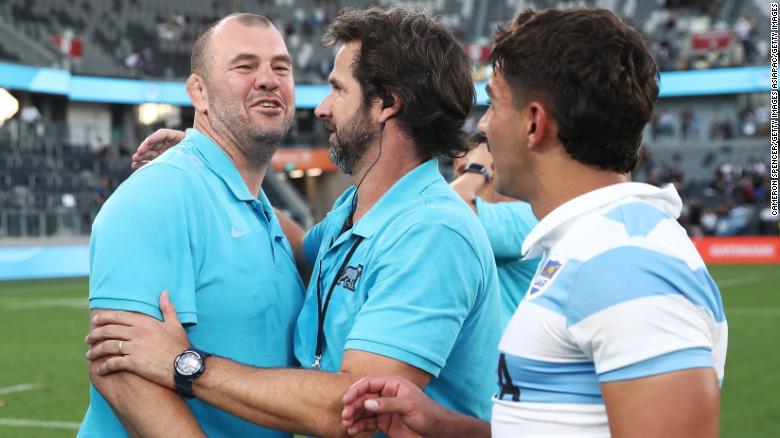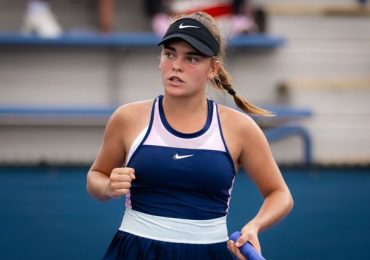It took 30 attempts for Argentina to finally beat the All Blacks, a landmark moment in the country’s rugby history that was met with tears of joy from the Pumas at Sydney’s Bankwest Stadium.
The 25-15 victory was even more remarkable when you consider that Argentina’s previous Test match was more than a year ago – a victory over the USA that signaled the end of a disappointing World Cup campaign after group stage defeats by France and England.
Preparation for the Pumas’ Tri-Nations opener had been hampered by coronavirus restrictions with players forced to train in their homes. A video released by the team on social media shows scrumhalf Tomas Cubelli practicing passes in a garage and flyhalf Nicolas Sanchez running 21 kilometers in his home.
By contrast, New Zealand entered last weekend’s game having played four Tests against Australia throughout October and November.
Given the circumstances, it’s no surprise former flyhalf Hugo Porta, who scored all the Pumas’ points in a 21-21 draw against the All Blacks 35 years ago, called it an “emotional weekend” for Argentina against New Zealand. The Pumas’ first ever match against the All Blacks was also in 1985.
“I always was very optimistic,” Porta tells CNN Sport. “I always said that I was going to be alive to see the Pumas beat the All Blacks (and) it came to be true last weekend.”
Porta once said that when teams play New Zealand – historically so dominant in international rugby – they either win or they learn, and the Pumas have done their fair share of learning over the years.
Porta’s 1985 side was the closest Argentina had previously come to beating the All Blacks. This time around it was another flyhalf, Sanchez, who contributed all the Pumas’ points as he rediscovered his world-class form in Sydney.
“It brings back some memories, but the main thing to say is this – I have to explain it to the people here – that I wasn’t on the winning side,” says Porta.
“I was very happy for Nicolas because he’s been through difficult problems this last year. So I was very happy for him. And I sent him a message and got his reply … he is very proud and he’s a very, very nice guy.”
Argentina enlisted the help of Michael Cheika before the All Blacks clash – a man who knows about preparing to face New Zealand better than most having coached Australia for five years.
Appointed head coach of Lebanon’s rugby league team on Thursday, Cheika will leave his role as consultant coach with the Pumas having had a hand in arguably their greatest ever victory.
But Porta doesn’t want praise for Cheika to rob the players of the credit they deserve.
“To tell you the truth, I don’t think he can make a difference being with the team for the last week,” says the 69-year-old Porta, who enjoyed an international career that spanned 19 years.
“Probably he can put (out) some ideas but the ones that were on the field were the players (and) the win really belongs to them, to the way they think (through) the game and the decisions they took.
“I think Cheika made a contribution, but I wouldn’t say we win because Cheika is there.”
In a continent where football is king, Argentina has led the way for South American rugby having finished third and fourth at World Cups in 2007 and 2015.
Yet the sport still holds a largely amateur status in Argentina with Super Rugby’s Jaguares the country’s only professional club side and many international players opting to play for teams in Europe.
Some would argue that Argentina needs more professional clubs to regularly challenge – and beat – the likes of New Zealand, Australia and South Africa in the Rugby Championship, but Porta maintains that amateur rugby is a key part of the country’s sporting fabric.

“I don’t know if we want to change the structure,” he says.
“Sport is an expression of the culture of a country and our culture is based on the clubs. Our clubs here are playing a major role. They play a role that goes further than sporting activities – it’s a social thing.
“What we must do is to improve the competition inside the domestic competition and then the best players are going to go to Europe (to play professionally).”
As Argentina prepares to face Australia this weekend, Porta is confident the Pumas can record back-to-back Test victories for the first time since June 2016.
“When 15 Argentinians wear the Puma jersey, they are capable of doing anything on the field,” he says.
“So you have to believe. I know that these players, they believe that they could win the game because if you don’t believe, you wouldn’t be playing.”











